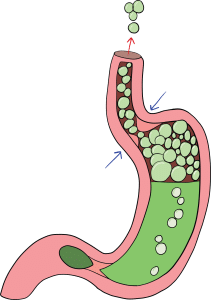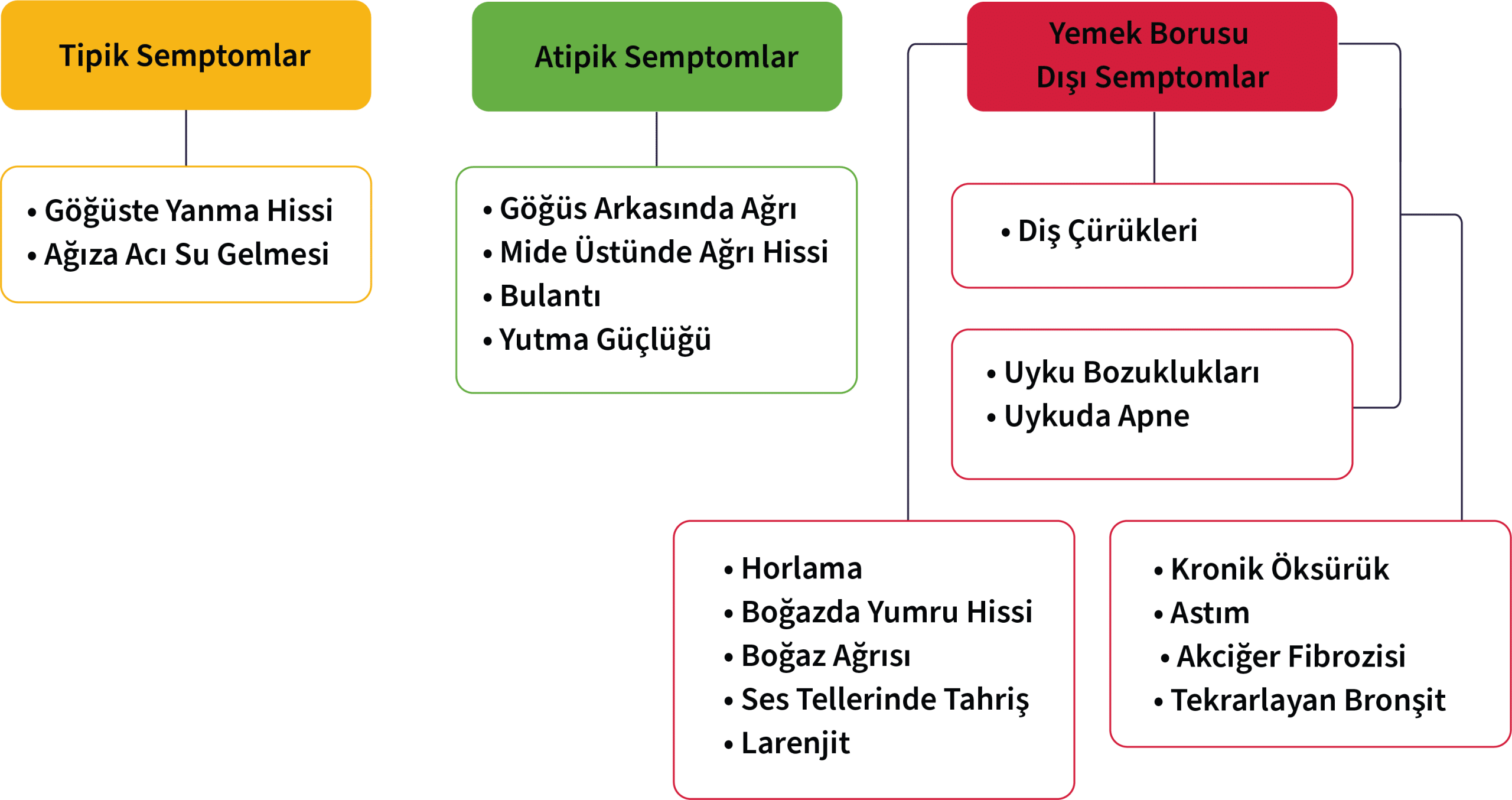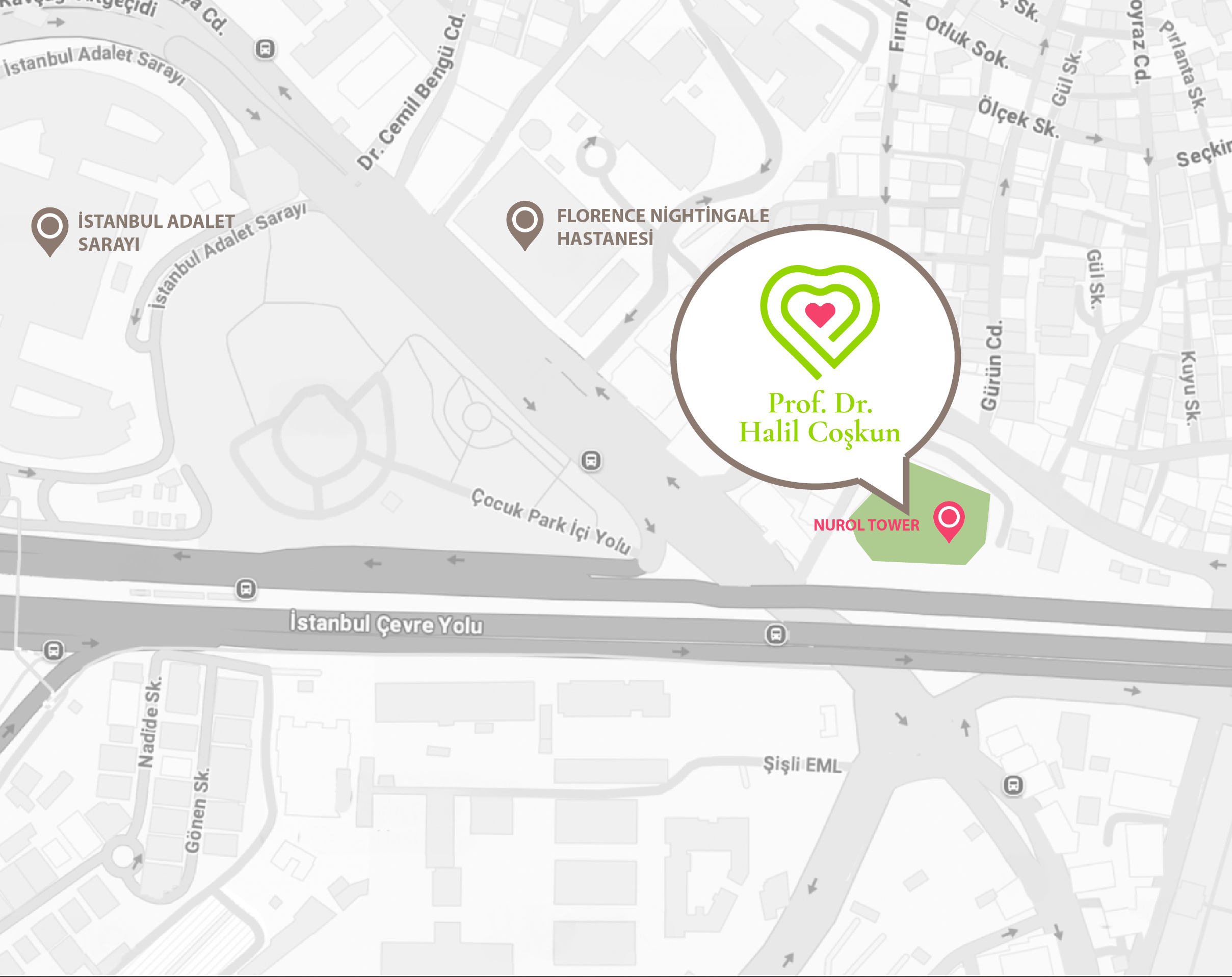What is Reflux?
 Reflux disease occurs when the contents of the stomach – including acid, bile, and digestive enzymes – flow back into the esophagus and even up to the mouth.
Reflux disease occurs when the contents of the stomach – including acid, bile, and digestive enzymes – flow back into the esophagus and even up to the mouth.
The most common symptom is the sensation of sour or bitter liquid rising into the throat, and a burning sensation in the chest area (heartburn).
What Are the Symptoms of Reflux?
Reflux disease can present in different ways.
The most common symptoms are as follows:
- Burning sensation behind the breastbone
- Nighttime coughing and throat irritation
- Sour or bitter liquid in the mouth
- Difficulty swallowing
- Hoarseness, feeling of a lump in the throat
If such symptoms arise after obesity surgery, it is recommended to consult your doctor.
The Relationship Between Obesity and Reflux
Clinical studies show that the risk of developing reflux is 2.5 times higher in individuals with a BMI over 30 kg/m².
Furthermore, as weight is reduced – either through diet or surgery – reflux symptoms tend to decrease as well.
Risk of Reflux After Sleeve Gastrectomy Surgery
In sleeve gastrectomy surgery, the stomach is narrowed to create a tube shape. This narrow structure can:
- Reduce obesity-related reflux symptoms with weight loss
- However, in some patients, the tubular stomach structure can disturb the pressure balance between the esophagus and the stomach, leading to reflux
For patients with a history of reflux, the risk of worsening reflux symptoms after sleeve gastrectomy exists. Therefore:
- An endoscopic evaluation must be performed before surgery.
- If advanced reflux and tissue changes (Barrett’s esophagus, dysplasia) are found during endoscopy → Roux-en-Y Gastric Bypass is recommended.
- If the endoscopy shows normal results but the patient still has reflux symptoms → significant improvement is generally expected after weight loss.

Mini Gastric Bypass and Risk of Bile Reflux
Mini Gastric Bypass is technically a single anastomosis surgery.
Therefore, in some patients, there may be a risk of bile reflux into the stomach and esophagus (around 5-10%).
- This condition can usually be controlled with medication.
- In rare cases, a second surgical intervention can completely resolve the symptoms.
How to Treat Reflux After Obesity Surgery?
In some patients, the cause of reflux after sleeve gastrectomy may be:
- Stomach narrowing (stenosis)
- Stomach rotation (twisting)
The most effective treatment for these cases is transitioning to Roux-en-Y Gastric Bypass through revision surgery.
- Reflux is a common condition associated with obesity.
- Endoscopic evaluation before surgery is mandatory.
- Surgical selection should be planned according to the patient’s reflux symptoms.
- If necessary, revision surgery can fully control reflux.










